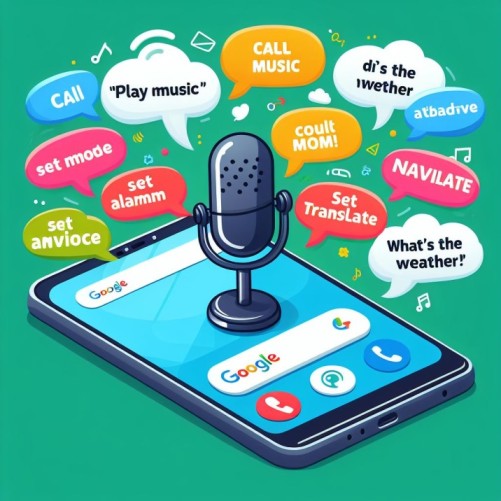The age of voice search is here. Imagine your customers asking their smart speakers to find the best pizza restaurant downtown or the nearest dry cleaners. If your business isn’t optimized for voice, you’ll miss out on these potential sales. Voice search queries are expected to make up 55% of all searches by 2023 – are you preparing your business to be discoverable?
Thesis
Voice search optimization (VSO) tailors your online content for voice queries and assistants. By optimizing for voice, businesses can increase visibility, provide better answers to customers’ questions, and build their brand through conversational search. This guide will teach marketing professionals and small business owners how to adapt their website for voice search success.
Understanding Voice Search Behavior
How People Use Voice Search
Voice search is most common in scenarios where the user’s hands and eyes are busy, like while driving, cooking, exercising, or multitasking. People also use voice assistants to set reminders, automate smart home devices, and ask general questions.
Voice queries are typically short, informal, and goal-oriented. For example, “what’s the best restaurant in town?” versus typing “top rated restaurants near me.” Local searches are very popular through voice devices.
The Anatomy of a Voice Search Query
Voice search queries consist of 3-5 words on average and often contain:
- Long-tail Keywords: Specific phrases like “gluten-free bakery Los Angeles” rather than just “bakery.”
- Conversational Language: Natural phrases like“What’s the menu at [Restaurant]?”
- Location References: Words indicating proximity such as “near me,” “downtown,” etc.
Search Engines and Voice Assistants
Google handles over 70% of voice searches. To rank well, focus on similar SEO principles like mobile-friendly pages, site speed, and local listings. Alexa, Siri and other assistants also influence results based on different criteria.
Each platform may interpret and respond to queries differently. Test your site with major voice assistants to ensure a consistent experience.
Optimizing Your Website for Voice Search
Content Optimization
Write concise, conversational responses to common voice queries. Use FAQs, tables, and headings so search engines can understand your content structure.
Prioritize long-tail keywords that directly answer natural language questions. Create location-specific content to show up for localized searches.
Technical SEO for Voice Search
Ensure your website loads quickly on mobile devices – slow load times significantly impact voice search rankings. Use AMP and schema markup to enhance your snippets.
Optimize your local business listings and schema data to boost visibility for local voice searches. Embed your address, opening hours, and contact info on pages.
User Experience and Voice Interaction
Design your website for seamless mobile usage without excessive scrolling or clicking. Use minimalist navigation menus that are easy to voice control.
Include natural conversation prompts and clear CTAs tailored for voice commands. Enhance accessibility for voice searchers through transcript alternatives and screen reader optimization.
Tools and Resources for VSO Success
Keyword Research Tools
- Ubersuggest: Get voice search keyword ideas based on volume and difficulty.
- SEMRush: See what voice keywords competitors are ranking for.
- AnswerThePublic: Discover questions people are asking around your topic.
Website Audit and Testing Tools
- PageSpeed Insights: Check your site speed on mobile and voice devices.
- Voice Search Test: Simulate voice searches to identify issues.
- Marketing Miner: Scan websites for voice search readiness.
Stay Updated on VSO Trends
Follow voice search news from Google and industry experts. Monitor updates to search engine algorithms as they continue evolving to interpret voice queries.
Conclusion
Voice search presents huge opportunities for businesses to connect with on-the-go users through conversational queries. By optimizing your content, design, and technical elements for voice search, you can get found faster and improve customer experience.
Voice search usage continues to rise exponentially. To stay discoverable, focus your efforts on voice search optimization now and in the long-term. With voice search optimization, your business can thrive in the age of conversational AI. Let your customers discover you by voice – speak up now to get found!


